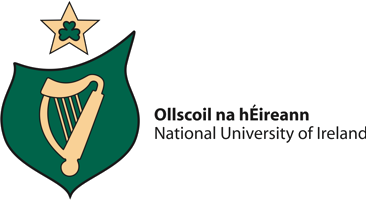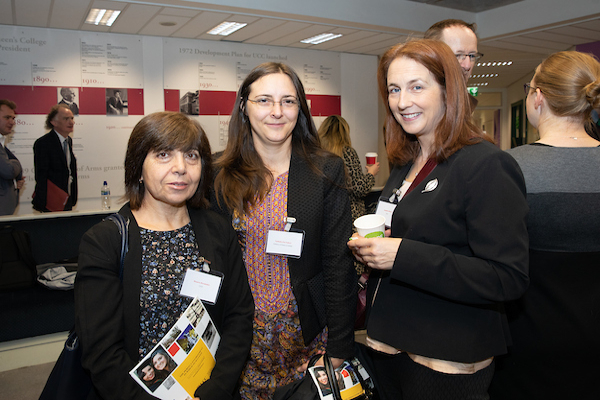10.12.2018
When English is not enough?
Foreign language learning and Ireland’s
‘Languages Connect’ strategy:
a symposium on perspectives for higher education
The challenges for Higher Education Institutions (HEIs) posed by government’s strategy for foreign language learning were the focus of an intensive day-long symposium organised by NUI, in collaboration with and hosted by UCC’s School of Languages, Literatures and Cultures, on Friday, 30th November 2018. Ireland’s strategy for Foreign Languages in Education (2017-2026) - Languages Connect - was launched on 4th December 2017, and clearly identified “the mistaken belief that English is enough”.
Symposium Speakers
Responding to the challenges posed by the national strategy, the one-day NUI symposium boasted an impressive programme of speakers from the four NUI constituent university language and literature schools or departments (UCC, UCD, Maynooth University and NUI Galway), as well as speakers and discussants from Trinity College Dublin, Dublin City University and Dublin Institute of Technology. Experiences from overseas also featured, with contributions from Professor Celeste Kinginger, Penn State University and Professor Leigh Oakes, Queen Mary University College London. Claire McGee of Ibec, the Irish Employers’ Confederation, highlighted employers’ views.
The symposium programme, and abstracts of papers presented are available for download here.
Topics of Discussion
The following is a selection of the wide-ranging discussion points raised and explored during the symposium:
-
NUI has a long-standing commitment to language learning but this has been challenged in recent years by a move away from the traditional matriculation requirement for “third” languages across many undergraduate degree programmes in the constituent NUI universities; -
Effective implementation of the strategy requires that representatives from Higher Education Institutions engage in dialogue with government on the active implementation of the strategy’s objectives; There is a need for HEIs to advocate for the inclusion and availability of foreign language learning in Irish primary schools; It is increasingly clear that HE institutions must develop language learning strategies and policies at institutional-level, so that objectives, actions and resources for language learning among the full student body can be agreed and implemented; -
There is a need for more evidence-based research in Ireland on the factors influencing student motivation – as well as student aptitude - to learn foreign languages, considering also whether Ireland’s official bi-lingual language status has a bearing on such motivation; Significant research is underway in the USA to better understand the impact of periods of Study Abroad on students’ performance at degree level and later in graduates’ professional and personal lives; Ab-initio and “elective” language learning are becoming more popular in universities and colleges, but ambition here can be constrained by practical logistics of timetabling and staff resource constraints in the HEIs – therefore investment is key; Research shows that even with relatively low levels of exposure, learning a language stimulates metacognitive skills – creates a “brain itch” – that can demonstrably benefit students of any academic discipline. HEIs must acknowledge and promote the value of language learning in its widest sense, as a strategic investment in their students’ academic development and personal well-being; Local evidence from NUI Galway suggests that students who study a third language to degree level through the medium of the Irish language outperform students taking a degree in a third language where English is the language of instruction; More work is needed to re-cast public perceptions of language degrees as valuable to employers for the wide-ranging knowledge, skills and competencies they engender (beyond the linguistic competencies that are needed for many perceived “language jobs”).
Photo Gallery
Further information from:
Patricia Maguire,
National University of Ireland
49 Merrion Square,
Dublin 2, D02 V583.
T: 353 (0)1 4392424
Twitter: @NUIMerrionSq
Facebook: National University of Ireland
« Previous

























